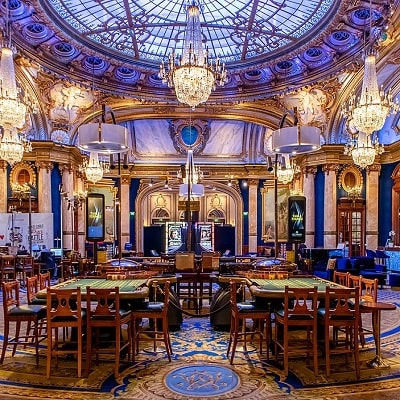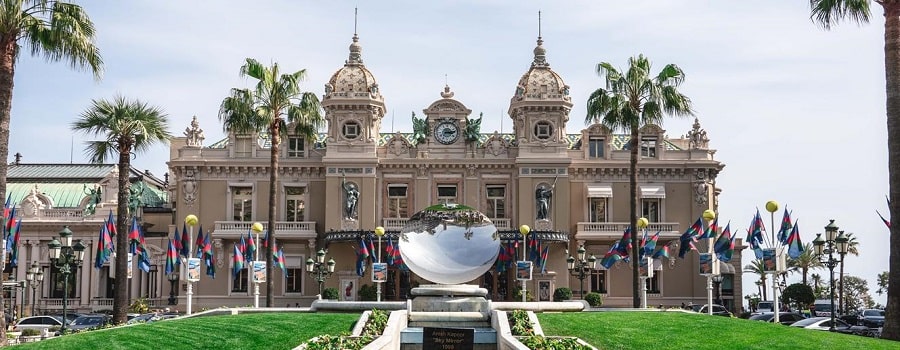The beautiful casino in Monaco

For the advent of the casino in Monaco we have to thank ubiquitous journalists: Albert Auber and Léon Langlois. It was they who managed to convince the government that such a step would raise the prestige of the Principality considerably.
The first gambling salon appeared in the 1850s, but did not bring the expected results due to poor transport accessibility. It then occurred to Charles III to make the game of roulette an adjunct to the treatment by the thermal waters. In 1863 the opening of the casino took place and the Société des Bains de Mer was created to control the hotel and entertainment business. François Blanc became the sole owner of the gambling business.
Casino of Monte Carlo
In 1868 François Blanc reached the height of his power by founding a chain of gambling houses and hotels on the unsightly Spélug Hill, which became a resounding success and brought fabulous profits to the owner and the country. Later, the luxurious neighbourhood was given the resounding name of Monte Carlo.
The famous, architecturally significant casino was built in 1878, and its expansion and modernization was not completed until 1910. Over the years several famous films have been shot here, and many legends, omens and customs have developed. The biggest win in the history of the casino was almost $2 million which was won by a lucky roulette player in 2015.

To avoid trouble, casino staff keep a close eye on regular customers’ gambling, keeping them within financial limits and stipulating a possible credit ceiling in advance. In fact, Monte Carlo could be described as the only true European casino with a unique atmosphere and culture. This is partly due to the low footfall compared to Las Vegas.
Monte Carlo is as much for betting a few thousand euros as it is for betting several million euros. Most visitors are limited to a thousand euros.
Who is banned from entering the casino?
The ban on gambling establishments applies primarily to inadequate customers and people who have asked to be blacklisted themselves.
There are five casinos in Monaco:
- Monte-Carlo – the most famous.
- Casino Café de Paris – famous for its abundance of slots.
- Sun Casino has an American flair.
- Bay Casino, the most modern version.
- Summer Casino.
Total number of slot machines reaches 1,100. Annual turnover of at least €220 million with a 13% tax paid to the government. The casino was not only the backbone of Charles III’s fortune, but also that of his successors, who managed to build it up by creating businesses in several crucial fields. But it would be an exaggeration to say that the gambling business feeds the princely family, as its contribution to the total budget is only 4%.
Interestingly, Monegasque citizens have had no access to Monte-Carlo since its founding. This rule has been legally enforced for over a century and a half.
